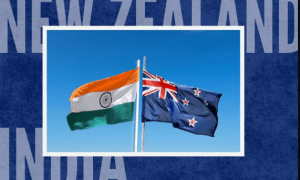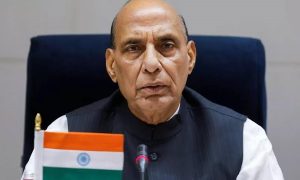Most major payment companies have already started looking at ways to deal with the likely tax implication, the report said
International payment companies such as Visa, Mastercard and American Express may attract 15 percent tax on their India income, The Economic Times reported.
These companies may come under the tax net in India as they have set-up servers locally to comply with a Reserve Bank of India (RBI) directive on data storage. According to the tax laws, a permanent establishment, or place of business, determines whether an organisation is required to pay tax.
At present, these companies are out of the tax net as they do not have a ‘permanent establishment’ in the country as they operate through offices in jurisdictions such as Singapore and store data on servers located in countries like the US and Ireland.
Read — RBI data localisation: 80% players comply with norms, say sources
In April, the banking regulator had given six months to global payment companies to store transaction data of Indian customers within India.
Experts told the paper that now that the companies have moved their servers to India, they will be treated as having a permanent establishment.
“As per tax treaties India has with various countries, the server on which a website or data or software is stored and through which it is accessible is a piece of equipment having physical location. Such a location can be considered as a fixed place of business of the enterprise that owns or leases and operates the server,” Dilip Lakhani, a tax expert told the paper.
Read: RBI may not immediately penalise payment cos breaching data localisation norms: Report
International companies may attract a 15 percent tax as they have invested in India through their arms in countries like Singapore with which India has tax treaties. Indian companies pay a 30 percent tax on their corporate profit.
According to the report, most major payment companies have already started looking at ways to deal with the likely tax implication.
“While the tax outgo for payment system providers would go up if they set up their own servers in India, most companies may either set-up a separate special purpose vehicle or just use the servers of an unrelated Indian company,” Jeenendra Bhandari, a partner at advisory firm MGB, told the paper.
Read — Explained: RBI vs payments companies on data localisation
These payment companies would use the servers by paying rent so that there will be no permanent establishment, Bhandari added.
Mastercard, Visa and American Express have reportedly started storing all its new payments transaction data in India at technology centres across India.
“On data localisation, Visa has completed the key requirement of storing its Indian data locally and is equipped to facilitate regulatory access to payment transaction data of Indian cardholders. We are currently implementing our solution in line with our plan submitted to RBI,” a Visa spokesperson said.
Read — Opinion | Data localisation offers Indian firms a chance to evolve their mindset
Government sources previously told Reuters that stringent data localisation measures were essential for gaining easier access to data during criminal and other investigations.
Apart from tax implication, the RBI circular may impact companies such as Google and Apple in different ways, the report said.
In October, two US senators had called on Prime Minister Narendra Modi to soften India’s stance on data localisation, warning that measures requiring it represent ‘key trade barriers’ between the two nations.
Other than the RBI proposal, India is working on an overarching data protection law that calls for the storing of all critical personal data in India. The central bank is also developing e-commerce and cloud computing policies.




























 WhatsApp us
WhatsApp us